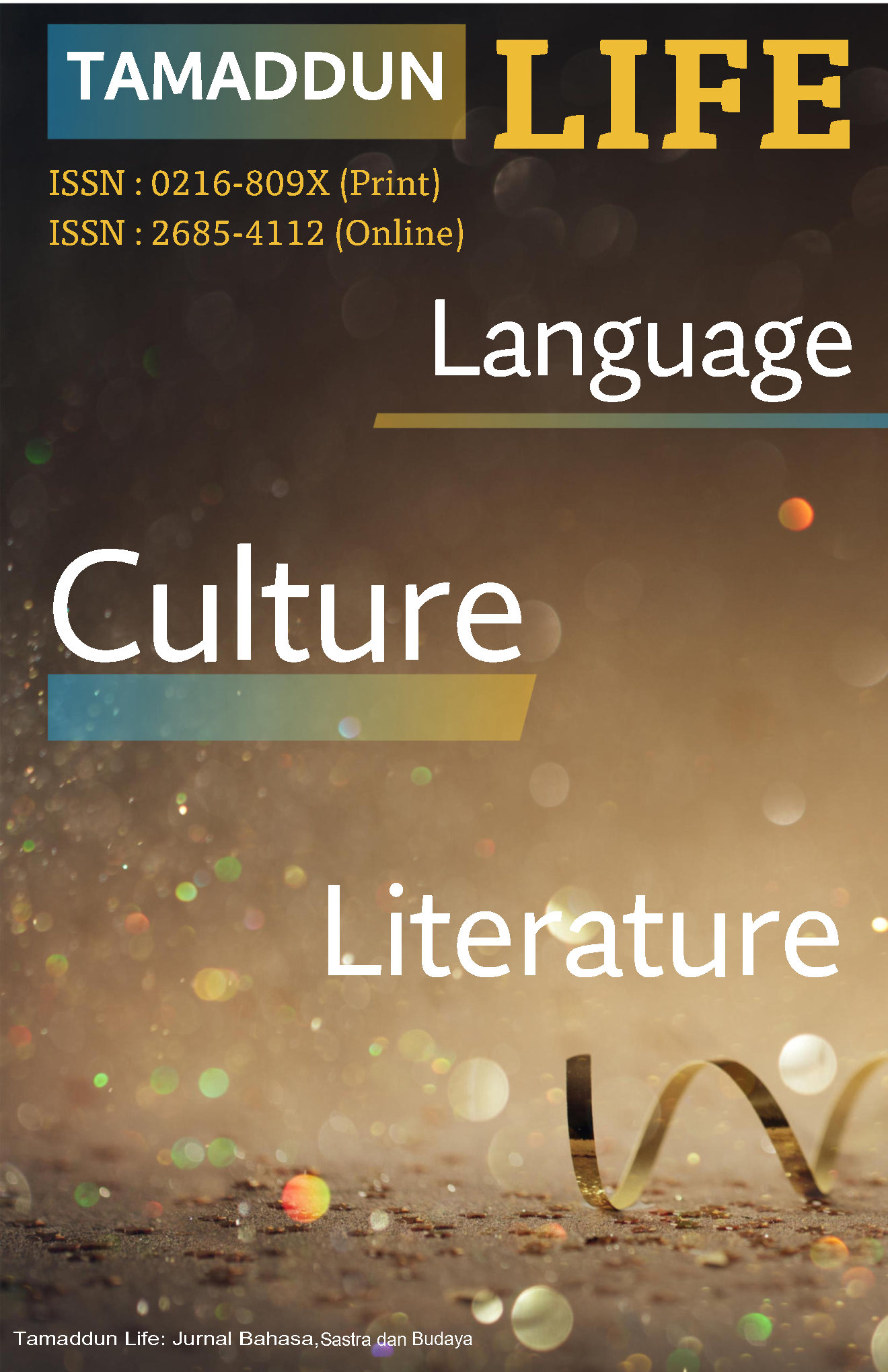Integrated Educational Practices for Building Character and Motivation among Orphans in Institutional Care at Ummu Aiman Makassar Islamic orphanage
DOI:
https://doi.org/10.33096/tamaddun.v24i1.940Kata Kunci:
character education, learning motivation, orphanage, Islamic education, Supervising Teacher StrategyAbstrak
This study explores the integrated strategies employed by caregivers at Panti Asuhan Ummu Aiman, an Islamic orphanage in Makassar, Indonesia, to strengthen character education and enhance learning motivation among children in institutional care. Using a qualitative phenomenological approach, data were collected through semi-structured interviews with 12 children and 6 caregivers, participant observation over a three-month period, and document analysis. The findings reveal nine interrelated strategies: psychological consultation, tahfidz (Qur’an memorization) programs, caregiver role modelling, structured character education routines, regular monitoring and evaluation, participation in Jakarta Intensive Learning Centre (JILC) tutoring, a balanced reward and punishment system, engagement with external stakeholders, and entrepreneurship training. These strategies function synergistically to address the emotional, moral, cognitive, and social dimensions of the children's development. The study concludes that a holistic and culturally grounded model integrating spiritual, psychological, and educational support can effectively foster character formation and academic motivation in orphanage settings. The implications suggest that faith-based care institutions can play a transformative role when guided by intentional, structured, and empathetic approaches to child development.
Referensi
Ariani, N., & Arham, M. (2020). An analysis of EFL test takers’ problems in IELTS writing task. Tamaddun, 19(2), 132-140.
Bandura, A. (1977). Social learning theory. Prentice-Hall.
Barlian, E. (2020). Community mentoring and the psychological development of orphans in rural Indonesia. Indonesian Journal of Community Psychology, 7(2), 101–114.
Bakermans-Kranenburg, M. J., Dijk, L. J. V., & Juffer, F. (2020). Enhancing the quality of institutional care: A review of interventions and their outcomes for children. Child Development Perspectives, 14(2), 92–98. https://doi.org/10.1111/cdep.12358
Bronfenbrenner, U., & Morris, P. A. (2006). The bioecological model of human development. In R. M. Lerner (Ed.), Theoretical models of human development (6th ed., pp. 793–828). Wiley.
Deci, E. L., & Ryan, R. M. (2000). The “what” and “why” of goal pursuits: Human needs and the self-determination of behavior. Psychological Inquiry, 11(4), 227–268. https://doi.org/10.1207/S15327965PLI1104_01
Deterding, S. (2021). Gamification for behavior change. In T. M. Hale & A. Ruby (Eds.), Handbook of Digital Health (pp. 1–15). Springer. https://doi.org/10.1007/978-3-030-82694-2_2
Hasmaniah, Hasibuddin, H., & Rosmiati. (2023). Metode Sensing, Thinking, Intuiting, Feeling dan Insting (STIFIn) dalam Pembentukan Karakter Peserta Didik di Sekolah Dasar Alam Insan Kamil Kabupaten Gowa. Journal of Gurutta Education, 2(2), 30-46. https://doi.org/10.33096/jge.v2i2.1366
Husna, A., Hasanah, R., dan Nugroho P. (2021). Efektivitas Program Tahfidz Al-Qur’an dalam Membentuk Karakter Siswa, Jurnal Isema: Islamic Educational Management, 6(1), 47-54. https://journal.uinsgd.ac.id/index.php/isema/article/view/10689
Kolb, D. A. (1984). Experiential learning: Experience as the source of learning and development. Prentice Hall.
Miles, M. B., & Huberman, A. M. (1994). Qualitative data analysis: An expanded sourcebook. sage.
Morris, A. S., Hays-Grudo, J., Zapata, M. I., Treat, A., & Kerr, K. L. (2017). Adverse childhood experiences, stress, and parenting. In R. D. Peters (Ed.), The Cambridge Handbook of Parenting (pp. 47–70). Cambridge University Press. https://doi.org/10.1017/9781316417867.005
Mugo, J. K., Kipkemoi, C., & Njoka, J. (2019). Leveraging formative assessment for learner support in Kenyan residential schools. International Journal of Educational Development, 68, 1–9. https://doi.org/10.1016/j.ijedudev.2019.04.001
Nurlaelah, (2023) Motivasi Guru dalam Meningkatkan Kualitas Peserta Didik Madrasah Aliyah DDI Pattoja di Kabupaten Soppeng, Open Journal Systems, (18) 3, 570. https://binapatria.id/index.php/MBI/article/view/463/439
Peterson, A., & Bentley, B. (2021). Exploring the connection between character education and psychological well-being in disadvantaged youth. Journal of Character Education, 17(2), 31–49.
Phuong, T. T., & Nguyen, H. M. (2022). Gamified learning and educational equity: Evidence from Vietnam’s digital classrooms. Asia Pacific Education Review, 23(1), 55–72. https://doi.org/10.1007/s12564-021-09703-7
Raharjo, R., Jayadiputra, E., Husnita, L., Rukmana, K., Wahyuni, Y. S., Nurbayani, N., ... & Mahdi, M. (2023). PENDIDIKAN KARAKTER Membangun Generasi Unggul Berintegritas. PT. Sonpedia Publishing Indonesia.
Rahmawati, D., Prasetyo, H., & Setiawan, B. (2021). The challenges of e-learning implementation in Indonesian orphanages: A case study. Journal of Educational Technology Development and Exchange, 14(1), 14–25.
Rahman, S. (2022, January). Pentingnya motivasi belajar dalam meningkatkan hasil belajar. In Prosiding Seminar Nasional Pendidikan Dasar. 8 https://ejurnal.pps.ung.ac.id/index.php/PSNPD/article/view/1076
Roeser, R. W., & Pinela, C. (2022). Integrating social-emotional and character development into educational practice: International perspectives. Educational Psychology Review, 34(4), 2157–2179. https://doi.org/10.1007/s10648-021-09625-6
Shihab Quraish M. (2009) Tafsir Al-Misbah: Pesan, Kesan, dan Keserasian al-Qur’an, Vol.15, Jakarta: Lentera Hati
Subaedah, S., Adawiyah, R., & Setiawati, N. (2024). Pengaruh Keteladanan Pendidik Terhadap Pembentukan Karakter Peserta Didik di SMPIT Insan Cendikia Makassar. Jurnal Ilmiah Islamic Resources, 21(1), 1-9. https://jurnal.fai.umi.ac.id/index.php/islamicresources/article/view/769
Tiara F. C. S., Wulan P. S. S., Loise C. G., Muhammad A. Z., & Harrys C. V. (2023). Peran Panti Asuhan Yayasan Rumah Bakti Kasih Anak Indonesia dalam Membentuk Karakter Anak Panti . SOSMANIORA: Jurnal Ilmu Sosial Dan Humaniora, 2(1), 1–6. https://doi.org/10.55123/sosmaniora.v2i1.1461
UNICEF. (2022). Skills for life and work: Equipping children in institutional care. https://www.unicef.org/reports/skills-for-life-and-work
Yakasai, M. I., & Kareem, R. (2023). Qur’anic memorisation and academic achievement among Islamic school students in Nigeria. Journal of Islamic Educational Studies, 5(1), 45–58. https://doi.org/10.58221/jies.2023.v5i1.65
Unduhan
Diterbitkan
Terbitan
Bagian
Lisensi
Hak Cipta (c) 2025 Luthfiah Nurhuda Watri, Rosmiati, Subaedah, Nurlaelah

Artikel ini berlisensi Creative Commons Attribution 4.0 International License.
Authors who publish with Tamaddun journal agree to the following terms:
1. Authors retain the copyright and grant Tamaddun the right of first publication. The work will be licensed under a Creative Commons Attribution License (CC BY 4.0), which permits others to share the work with proper acknowledgment of the authorship and initial publication in this journal.
2. Authors may enter into additional non-exclusive agreements for the distribution of the published version of their work (e.g., posting it to an institutional repository or including it in a book), provided that the initial publication in this journal is acknowledged.
3. Authors are encouraged to post their work online (e.g., in institutional repositories or on their personal websites) before and during the submission process. This can lead to productive exchanges and increase the visibility and citation of the published work.






